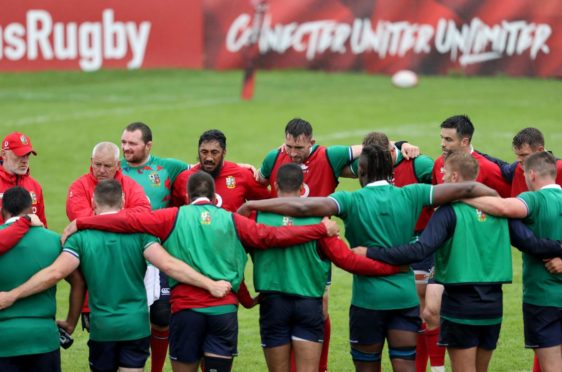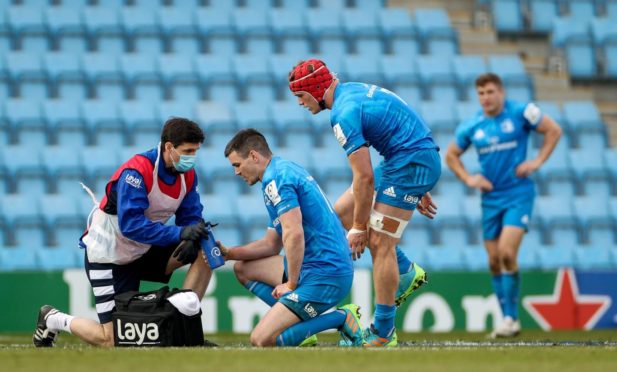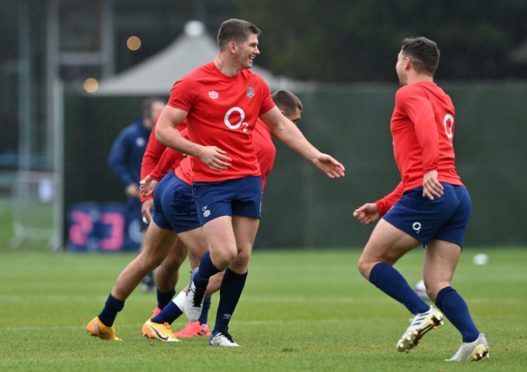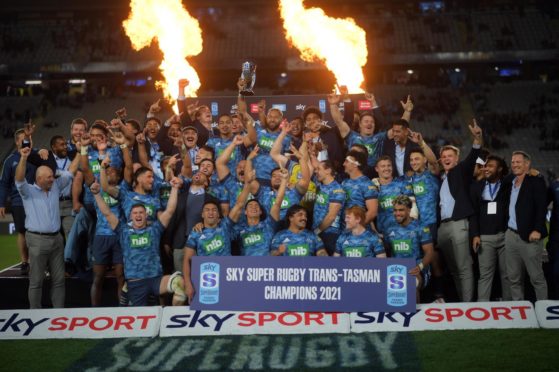Who’d have thought it? It turns out that Warren Gatland just can’t win.
Not at rugby and winning trophies and Grand Slams and Lions tours and all that, the Wales and Lions head coach has done plenty of winning there. Where he can’t win is at the old staple of pleasing everyone.
For years, of course, Gatland was a bete noir for Scots fans and even some writers – er, guilty – for ignoring the claims of our players for Lions duty. This often became spiteful, and not surprisingly Gat, being a confrontational, upfront kind of man, got a little spiteful back.
I well remember his press conference after Wales’ shellacking of Scotland in Cardiff in 2018, not long after not picking many Scots (or any for the tests) in the previous summer’s Lions tour. His contempt and smugness were pretty much off the scale.
And who wouldn’t have been? He’d got pelters from everyone north of the border for the best part of the year. He didn’t exactly say “in what way was I wrong?” but he might as well have.
The Irish and English take their turn to moan
This year’s Lions selection, of course, proved that Gat didn’t hate Scotland after all and he was a forgiving soul. Eight Scots was just about as good as we could have imagined, and there’s a fair shout for a test place or two.
Only those Irish and English who always rolled their eyes when Scots moaned about lack of representation seem to have turned on him.
First it was the Irish, mortally offended that Jonny Sexton had been left out of the squad and only slightly less irked that James Ryan missed out too.
Actually, I’m with them on Ryan. Not so much on Jonny, who is 35 after all. While the Irish have done well to keep him in one piece for the most part over the years, the biff-bang-pow of a Lions schedule in South Africa always seemed a stretch for him.
But no remotely sound-minded individual is with the likes of Neil Francis, the Irish Independent’s troll-in-chief, who thinks anyone off a street corner in Temple Bar is more worthy of a Lions shot than any Scotsman.
We had a clue that our Irish cousins were not quite as magnanimous as they appeared about the Lions this last two decades, back in 2013. Then, Gatland dropped Brian O’Driscoll for the crucial final test and certain Irishmen wanted him excommunicated – no less a personage than Willie John McBride among them.
Of course, Gat was right – Jonathan Davies was clearly the coming man, and the Lions won a record victory to clinch the series.
No English starters at Murrayfield this weekend
Anyway now the English – on social media at least – have turned against Gat for not playing a single Englishman from the start on Saturday’s Vodafone 1888 Cup farewell match at Murrayfield against Japan.
Gat appeared to get slightly defensive about this when naming the team, speaking in over-glowing terms about returning Saracens players like Owen Farrell and Mako Vunipola.
Farrell, he revealed, was top in a players’ vote for the squad leadership group. One assumes the actual captain, Alun Wyn Jones, was in the group without requiring a vote.
But the truth is that Gatland wants to win. Fear, favour or pleasing the masses doesn’t really come into it.
As head coach, this is entirely his right. I’d have liked if he’d at least given airspace to Scottish candidates on the last two tours. But it’s difficult to argue with a won and a drawn series.
Gatland may yet not pick a Scot for the tests. But selection will be about the structure and combinations he wants. If it fails, then he’ll no doubt take the criticism on the chin, and quite right.
But as of now, he’s definitely earned the right not to be continually second-guessed.
More tinkering with the rules
Here come those law variations we’ve been expecting. The Sydney Morning Herald revealed this week that World Rugby are to introduce the “50-22” and goal-line drop-out in all competitions from August 1.
Mercifully the 20-minute red card and captain’s challenge variations seen in the Pro14 Rainbow Cup have been ditched. The two new laws will be initially trialled and monitored for 12 months.
I’m still sceptical about both. The goal-line drop out, which replaces the five-metre scrum for balls held-up in goal, seems to me to favour defences, and that’s never a good thing.
“50-22” sees a kick bouncing into touch from a kicker’s own half to the opposition 22 now rewarded with his team getting possession at the lineout.
It’s taken from Australia’s NRL, and it is fine in rugby league – largely because league has no lineouts.
More incentive for kicks and mauls
In union, however, all this surely does is provide more incentive to kick and maul lineouts. There is far, far too much of that already.
The theory is that teams will have to take defenders out of the line to patrol the touchlines. As a result there will be more space for running rugby, maybe.
That might be true in the Southern Hemisphere where there’s much more running done generally. Surely it should have been pre-trialled in Europe to see if it has the desired effect on the more structured game here.
After all, what’s the percentage play? Kicking to gain an attacking lineout, or trying to beat someone? I know what the more difficult skill is, for sure.
And are we seriously trying to reduce kicking in rugby union by promoting a law that gives such a major advantage from a kick? It makes no sense.
All I can see is more kicking and many, many more mauls. The absolute opposite of what’s intended.



